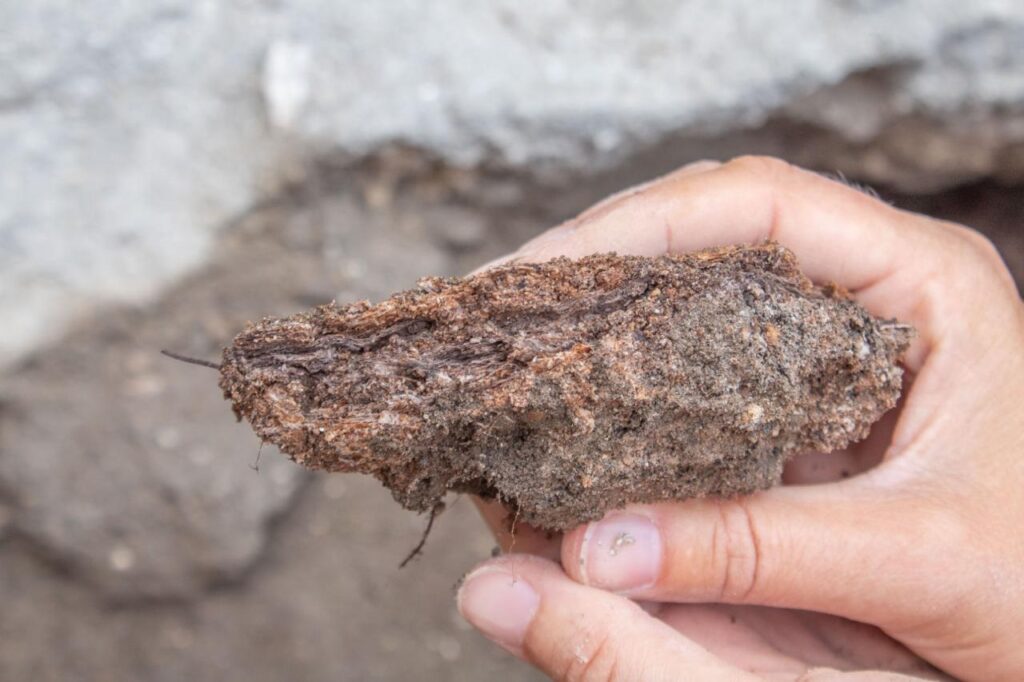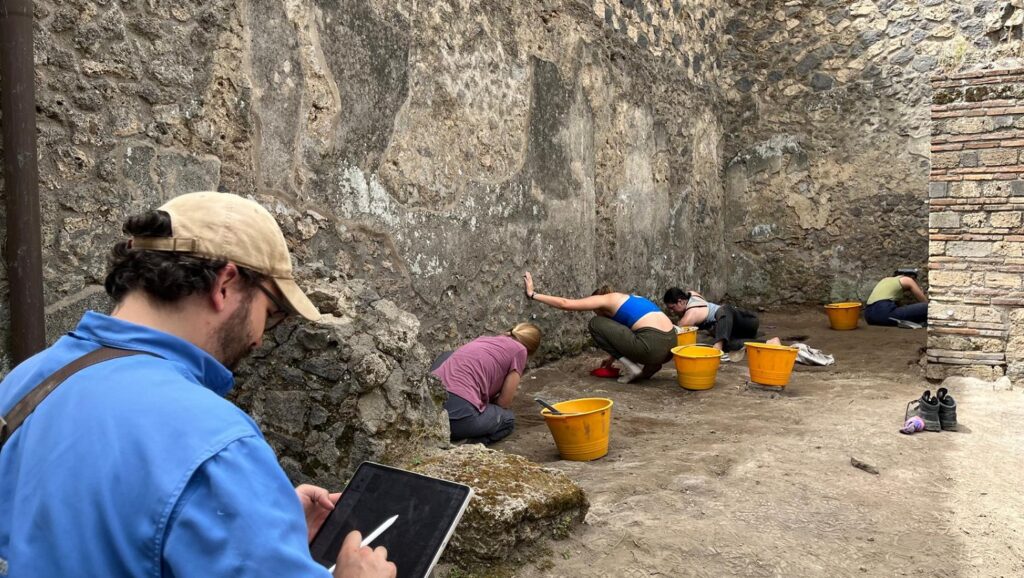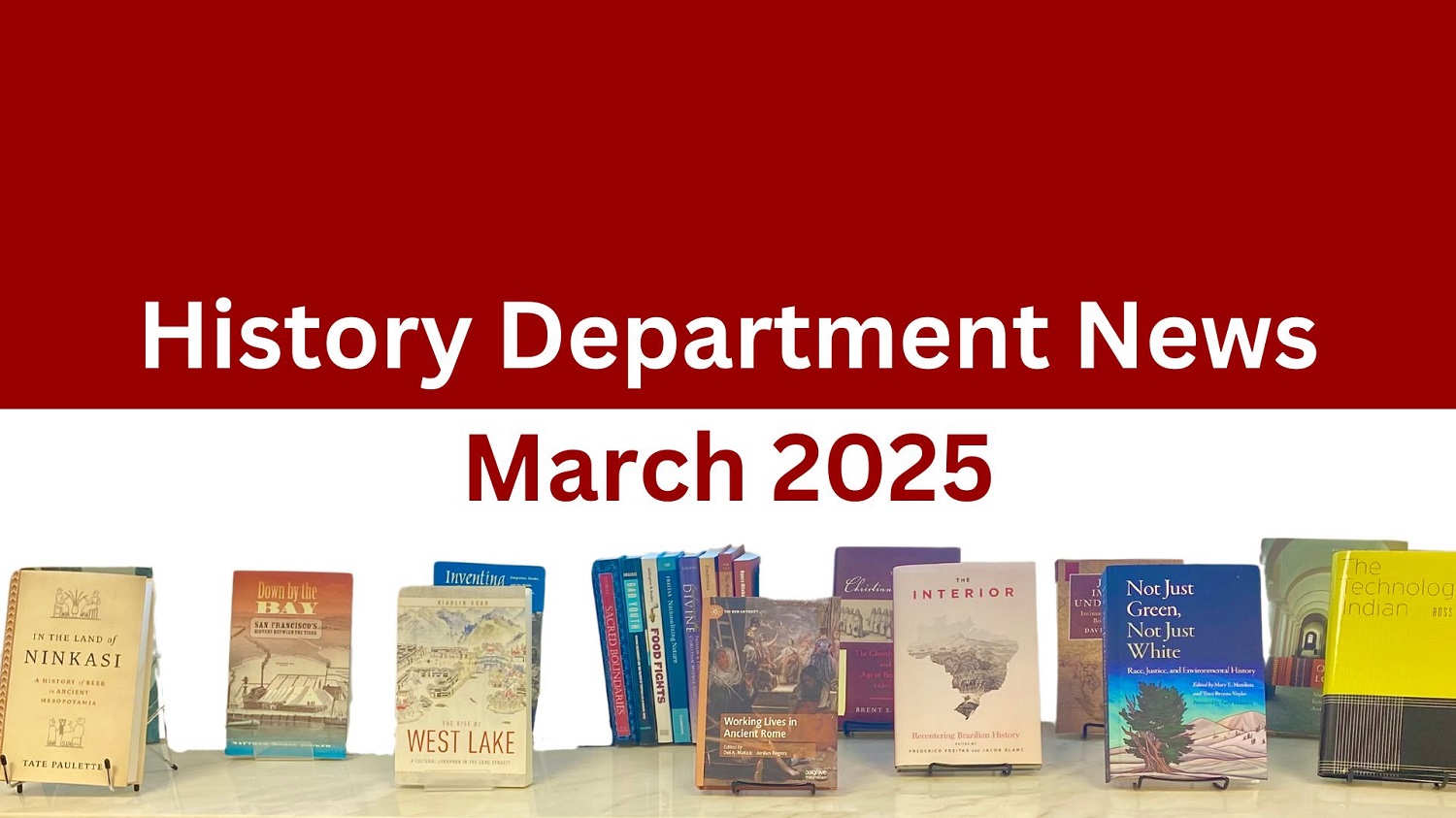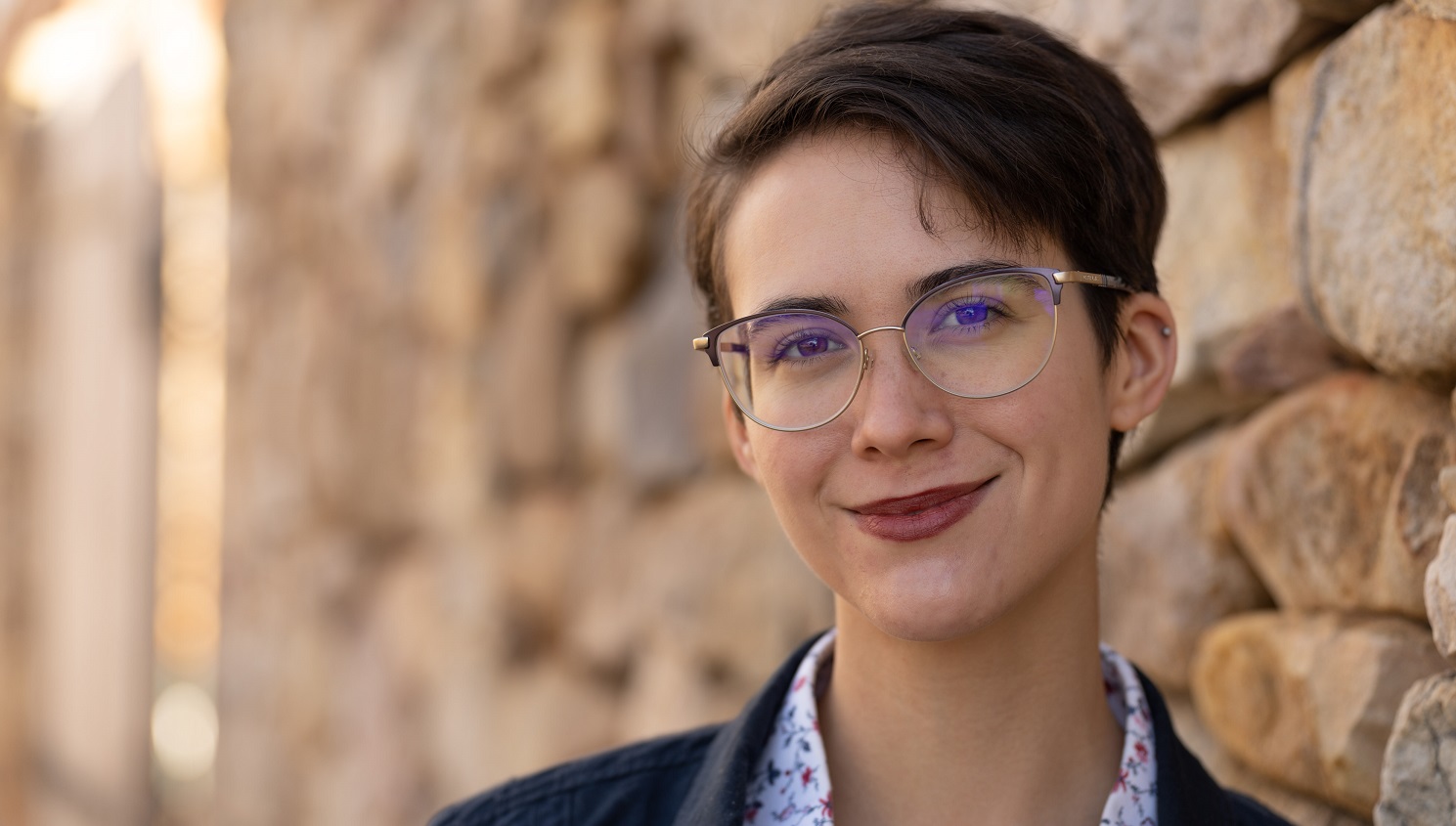Dr. Jordan Rogers, who joined our department this fall, is a cultural and social historian of the ancient Mediterranean world, with a particular interest in the formation and maintenance of urban communities, He spent the summer on an architectural dig in Pompei. We talked about the dig, his teaching and upcoming projects and publications.
Tell me about the Pompei dig.
We’ve been digging now for three seasons. We just finished our third season digging in a part of the city that’s pretty close to the amphitheater. The building we are excavating appears to have been mixed use in its final phase when Vesuvius erupted in 79 CE. One part of the building was dedicated to dining; in another part of the building, what we found, and this was unexpected and really exciting, is evidence for the manufacture of reed related products like baskets and mats. We found incredible preservation of massive amounts of reeds that had clearly just been harvested and stored in an area for processing in a different part of our building. You don’t find that type of organic material preserved in Pompeii often.

The building is interesting in the sense that a lot of different things are happening all in the same space. You have manufacturing work occurring next to dining, for one, which is telling us something about the Roman sense of hygiene being very different from ours. But also, maybe something about seasonality as well – that they’re using parts of the building at different times of year for, in this instance, industry, which maybe isn’t happening in the spring, for example. So that has been very exciting because you just don’t typically find this kind of stuff in Pompeii. One thing I’ll add, because it’s really cool, is that on our building’s walls, there are graffiti and what are called electoral programmata, which are basically political advertisements. These are common in Pompei. On our building, we have one that says, “Tegeticula asks you to vote for Rufus for Mayor.” The name, Tegeticula, actually means “little reed mat” in Latin so we think she was somehow participating in the reed-product manufacture in the building. Also, based on onomastic studies that I’ve done, it was probably a name given to an enslaved woman who worked in this industry and was later freed and still working in the building at the time of the eruption. Even with this background, and even though women could not vote in the Roman world, she still had enough political clout in the neighborhood to post an advertisement endorsing a candidate on our building. Super exciting, as far as thinking about social history, economic history and labor history in the Roman World.
So this past summer, we excavated all these reeds. We uncovered the entire context and spent three weeks cleaning the context, documenting the context, and then slowly and carefully excavating it.

You had students with you?
Yes. We bring in students every year as excavators. There’s no academic credit that the students receive for it, because we’re a research project and not a field school, but we still need people to excavate. We want to bring in students, undergrads and new graduate students especially, who have not had chances to excavate or the opportunity to experience Roman archeology in the field. It’s a real treat – I usually take one or two students of my own with me.
What else are you working on year?
I’m teaching two classes – the Ancient Mediterranean World course, which has been a blast so far, since it’s new for me in the sense that I haven’t typically taught Mesopotamian history. I’m also teaching the HI 491 senior seminar, “The Ancient World.” The topic is migration and identity in the Roman world. A lot of my students, even as history majors, don’t know that much about Roman history in particular. So, I think the challenge for them, which is an exciting one, is not just thinking about how we write history in general – the methods of interpretation, the theoretical frameworks, and so on – but also understanding how Roman history unfolds in the first place.
What are some other projects you’re currently working on?
I just published a co-edited collected volume, “Working Lives in Ancient Rome“. I co-authored the introductory chapter “Structuring Subjects: Weaving the Web of Work/Life,” and contributed the chapter, “Labor as Religio in Imperial Rome: The fabri tignarii Relief.” My colleague and I started the project as a digital workshop in 2020 during the pandemic. It’s exciting to see something that started off as just a germ of an idea become a fully fledged physical thing.
I do a lot of work in Roman history and historiography, and so a lot of my smaller projects are thinking about various ways in which the Romans make their own past -in other words, how they wrote about or constructed their history. One of the articles I’m working on currently is an historiography article about the Roman historian Livy, who wrote, in the first century BCE, a history of Rome and its people called “From the Founding of the City.” I’m examining how he’s taking something real – the annual departure of the Roman consul on military campaign – but using it as a narrative tool not just to tell the history of the Roman Republic, but also to help his reader understand what’s coming next in the narrative. It also imbues the historical evidence with moral significance, to guide readers in understanding what was right, and what was wrong, about their shared pasts. This is what the Romans thought history should be doing – teaching by example – both the good and bad.
Dr. Rogers received his Ph.D. in Ancient History from the University of Pennsylvania in 2021, after taking both his B.A. (2012) and M.A. (2015) in Classical Studies and Languages at Indiana University. Before joining NC State, he served as a Visiting Assistant Professor of Classics at Carleton College (2021-3) and a Postdoctoral Fellow in Classics at Hamilton College (2023-4).
- Categories:



